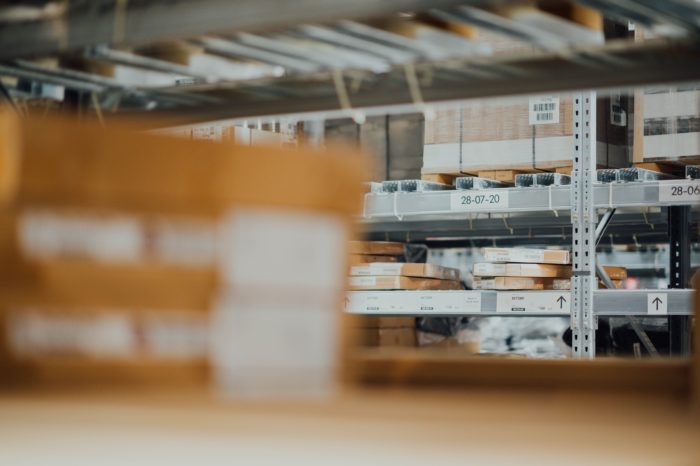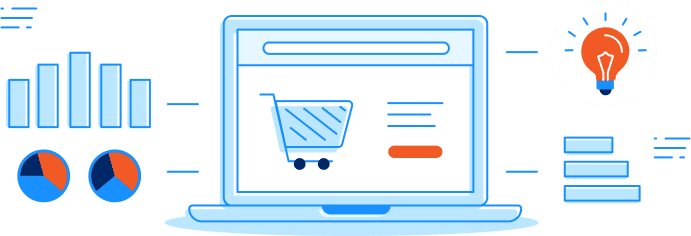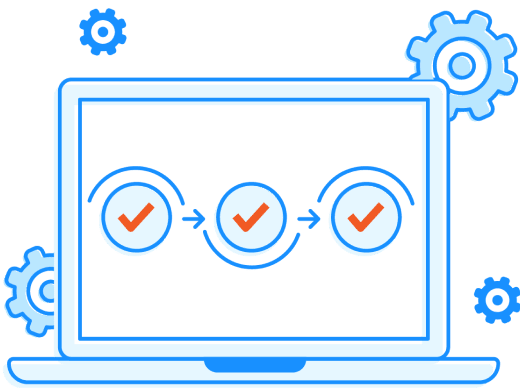As an eCommerce or direct-to-consumer business, you don’t have the luxury of working with retail partners that can help with shipping, warehousing, distribution, and other key supply chain tasks.
You might be able to get away with keeping your inventory in your living room or garage, or having family and friends help with shipping for a while, but as you scale, that will get comically unwieldy for you (and your loved ones). Eventually, you might need to turn to a dedicated logistics partner.
This guide will give you a solid grounding in the world of third-party logistics. We’ll look at what that actually means, explain the benefits of working with a logistics partner, and how you can evaluate them to find the one who will help your brand get to the next level.
What is Third-Party Logistics?
Third-party logistics, often referred to as 3PL, is the process of outsourcing logistics processes, such as inventory management, procurement, warehousing, and fulfillment, to a specialized provider.
3PL can refer to a broad set of providers and solutions. Some 3PL providers simply cover partial supply chain services, offering only warehousing, distribution, shipping and receiving, etc. Others offer a full-service network of providers that give you an end-to-end array of supply chain and logistics management services.
Here’s a simple example of how 3PL works. Say you’re a small brand that sells office furniture. Your manufacturers make the furniture, while you handle the marketing and sales functions. If you didn’t want to handle the customer ordering process or the tracking and fulfillment of customer orders, you would hire a 3PL partner to do that for you.
With that contract in place, when a customer orders something from you, your 3PL partner would process the order and hire a carrier to deliver the product to your customer. You never interact with the customer or deal with actually making sure their order gets to them.
Third-party logistics, often referred to as 3PL, is the process of outsourcing logistics processes, such as inventory management, procurement, warehousing, and fulfillment, to a specialized provider.
3PL vs. 4PL
Another term that might come up as you consider 3PL solutions is 4PL, or fourth-party logistics. 4PL is a model in which a brand outsources the management of logistics and execution across the entire supply chain. A 4PL provider will be able to offer strategic guidance and a higher level of management over your supply chain. Essentially, you would be outsourcing most of your logistics to this partner.
For our purposes, however, we’ll discuss how 3PL partners can benefit your brand and how you can make decisions about bringing one into the fold.
The Benefits of 3PL for Growing Brands
Arguably the biggest benefit to bringing a 3PL provider in to manage your logistics is cost-effectiveness. Consider the cost of having to own and manage warehouses and fleets of delivery vehicles, in addition to the labor costs that come with them instead of outsourcing it.
Logistics and supply chain management is extremely difficult, especially if you eventually want to scale to international sales. A 3PL provider comes ready with the expertise and infrastructure to get your supply chain right. It’s a lot more effective and faster to get up and running when you don’t have to build the expertise and knowledge to manage your supply chain yourself.
For a small but growing brand, working with a 3PL partner makes it much easier to scale. As your brand grows, so will sales and the need for fast, reliable fulfillment. Scaling supply chain operations is incredibly complex, and can slow you down if you don’t have the internal expertise to do it the right way. A 3PL provider, on the other hand, can scale up or down based on your needs.
Think of it this way: With so many consumers used to Amazon’s fast and reliable shipping, you will have a hard time competing online if you can’t offer comparable speed and on-time delivery rates. A 3PL provider often gets you to that level faster than trying to build it in-house.
Of course, there are some tradeoffs that come with working with 3PL services. The biggest tradeoff is that of control. You get cost-effectiveness when you outsource your logistics, but you may not have direct oversight and control over how your partners manage your supply chain.
It’s important to have someone internal to your business who can do quality control and ensure your customer experience isn’t being negatively impacted by your 3PL service. If they upset your customers, your brand will be blamed, not the logistics provider.

How to Tell Your Brand Needs a 3PL Partner
When you were starting out, it’s possible you were fulfilling your orders yourself. That can certainly work for a while, but at a certain point, it’s crucial to decide if you want to manage your supply chain yourself or look for logistics companies to which you can outsource that part of the business.
Here are some ways to tell if your brand could use a 3PL partner.
- You’re struggling to keep up with order volume—Growing your customer base and sales volume is great, but if you can’t actually deliver a strong experience to all your new customers, they will eventually look elsewhere. If you and your team are working around the clock to get orders shipped, a 3PL partner can take that load off your shoulders.
- You’re running out of space to hold inventory—Are your storage spaces constantly overflowing with inventory? If so, a 3PL partner with the proper warehousing will be able to spare you the costs and hassle of figuring out how to store inventory yourself.
- You’re getting more complaints about order fulfillment—Customer service is vital in the competitive eCommerce/direct-to-consumer world. If you notice complaint volume going up significantly, it might be time to let the pros handle logistics.
- Your shipping costs are hurting profitability—If you’re devoting considerable resources to order fulfillment, you’re likely not focusing on growing the business. Hiring a 3PL provider seems costly, but when you consider how much time it will free up for you and your team, it may actually save you money in the long run if you can focus on higher-value tasks.
- You’re not focusing on your core competencies—To that last point, if you find that all your time is being spent putting out fires in your logistics process, it should be clear that you’ve grown to the point where you can’t do it all yourself. Outsourcing logistics means you can put your time and focus into growing your brand.

How to Choose a 3PL Partner
If you find that bringing on a 3PL service is the right move for your business, it’s important to evaluate several different providers to make sure you’re getting the right one for your brand. Here are some key things to look for in a 3PL partner.
Can They Fit With Your Other 3PL Providers?
Some 3PL providers only handle a part of your logistics operations, such as shipping and receiving or warehousing. That’s OK, but you have to ensure that if you’re trying to plug a specialist 3PL partner into your operations with other partners that they can do so seamlessly.
In other cases, it might be best to look for a modern end-to-end 3PL partner that can run your entire supply chain. This tends to have the strongest results because you don’t have to oversee multiple partners or worry about a lack of cohesion between different parts of the supply chain. If your partners can’t work well together, your customer experience will suffer.
Are They a Tech-Forward 3PL Provider?
Most eCommerce and D2C brands are fairly tech-savvy, and their 3PL partners should be the same.
As you evaluate potential partners, dive deep into the specifics of how they’ll integrate with your online store, how their software provides you with vital data on the customer experience, and if they have cloud-based portals for you to easily manage your inventory and do quality control.
How Stable is Their Business?
Just as you would with any partner, you want to know that your potential 3PL provider isn’t having serious business issues.
Ask to get a look at their own financial statements and determine if they have grown in a financially stable way. You don’t want to end up with a partner who is prone to business interruptions or shutdowns due to mismanagement; otherwise, your supply chain could face massive disruptions.
How Has Their Capacity Grown Over Time?
A strong maximum capacity is important, but it’s also a good idea to see how they’ve grown their capacity over time.
As your business grows, you want a partner that can scale with you. Once you have a 3PL partner handling all of your logistics, the cost to switch providers is high. If you find that your projections show that you’ll outgrow your partner relatively soon, it might be best to find another who can grow as you do.
Ask questions about how many warehouses they operate, how their fleets have grown, and how many orders they’re able to handle each month. As you might expect, strong growth here is a good sign that you’ve found a partner you can rely on.
Do Their Locations Allow Them to Serve Your Customers?
The number of fulfillment centers and their locations is vital for you to evaluate when choosing a 3PL service.
Essentially, you want to determine if their locations are near your high-volume areas. This will allow you to offer fast delivery while charging low shipping rates for your customer. Additionally, more locations allow you to distribute your inventory more easily and to a wider customer base.
Finding the right 3PL partner can be a major driver of growth for your business. By allowing you to focus on what you do best and leaving the complexity of supply chain and logistics management to the experts, you stand a much better chance of making the leap from a smaller eCommerce or D2C brand to a dominant player in your space.














